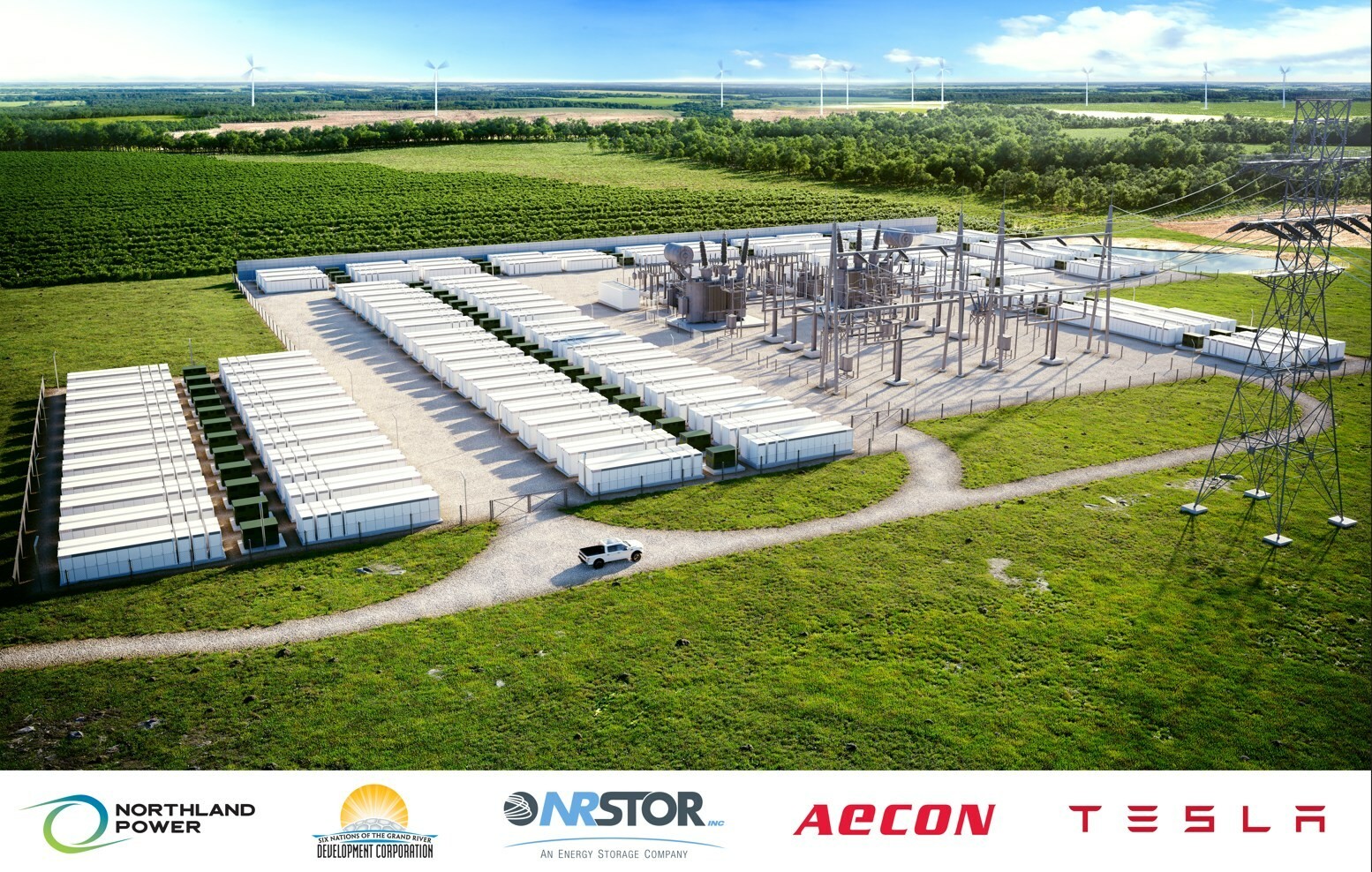Aecon to help build historic energy storage facility
The Oneida Energy Storage Project is the largest of its kind in Canada and amongst the largest in the world.

Oneida Energy Storage Project. – Aecon Group
Key Takeaways:
- Aecon will help build the Oneida Energy Storage project in Ontario.
- The project is the largest of its kind in Canada and amongst the largest in the world.
- Construction is expected to commence in the second quarter of 2023, with anticipated completion in 2025.
- The facility will draw and store existing surplus baseload and renewable energy during off-peak periods and release that energy back to the grid when demand is at its peak.
The Whole Story:
Aecon Group Inc. announced that Oneida Energy Storage Limited Partnership (Oneida LP), a consortium in which Aecon Concessions will be an equity partner, has executed an agreement for an energy storage facility in Ontario.
The consortium entered into an agreement with Independent Electricity System Operator (IESO) to deliver the Oneida Energy Storage Project, a 250 megawatt / 1,000 megawatt-hour energy storage facility near Nanticoke, Ont.
Under the agreement, Aecon has been awarded a $141 million engineering, procurement and construction (EPC) contract by Oneida LP. The value of the contract was added to Aecon’s Construction segment backlog in the fourth quarter of 2022.
NRStor, the Six Nations of the Grand River Development Corporation (SNGRDC), Northland Power and Aecon Concessions will be the owners of Oneida LP, which will provide electricity storage services to the IESO through a 20-year agreement and receive fixed availability payments from IESO for capacity services, as well as revenue from energy sold into the Ontario electricity grid and operating reserve. Tesla is the battery supplier and has executed a battery supply agreement with Oneida LP.
According to Aecon, the project is the largest of its kind in Canada and amongst the largest in the world. It will provide a gigawatt-hour of much needed capacity to the Ontario grid, while prioritizing local Indigenous partnerships and environmental benefits. The scope of work includes designing the facility, procuring balance of plant facility equipment, installing equipment foundations, electrical houses, battery transformers, switchgears and underground cabling, as well as constructing a high voltage substation, and commissioning and startup activities. Construction is expected to commence in the second quarter of 2023, with anticipated completion in 2025.
“As a leader in the energy transition, Aecon is working at the forefront to build and operate sustainable infrastructure and the battery energy storage market offers robust opportunities for continued growth in a significant global market,” said Jean-Louis Servranckx, president and CEO of Aecon Group Inc. “We are pleased to combine the multidisciplinary expertise of Aecon’s Construction and Concessions teams to deliver this sustainable project that will improve electricity management during peak demand, reduce GHG emissions, and support economic development and long-term partnerships with Indigenous communities – creating energy savings to meet the needs of future generations. Building on our existing Aecon-Six Nations joint venture with the SNGRDC, this partnership is a natural progression, and we look forward to working with all partners to deliver this innovative project.”
The project is expected to reduce greenhouse gas emissions by 4.1 million tonnes – the equivalent of taking 40,000 cars off the road every year. The facility will draw and store existing surplus baseload and renewable energy during off-peak periods and release that energy back to the grid when demand is at its peak. In addition, Aecon stated that it will help stabilize Ontario’s electricity sector by providing important grid balancing services and benefits to provincial ratepayers, including reducing the need and cost associated with using gas-fired power plants during times of peak demand.
Aecon noted that the Canada Infrastructure Bank has played a key role supporting project development and is collaborating with the Oneida Energy Storage Project on an investment agreement. Natural Resources Canada has provided $50 million in funding from the Smart Renewables and Electrification Pathways program. The project contributes to Canada’s ongoing transition to a net-zero economy by 2050 and commitment to achieving a 100 per cent net-zero-emitting electricity system by 2035.

